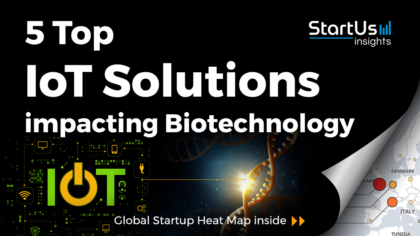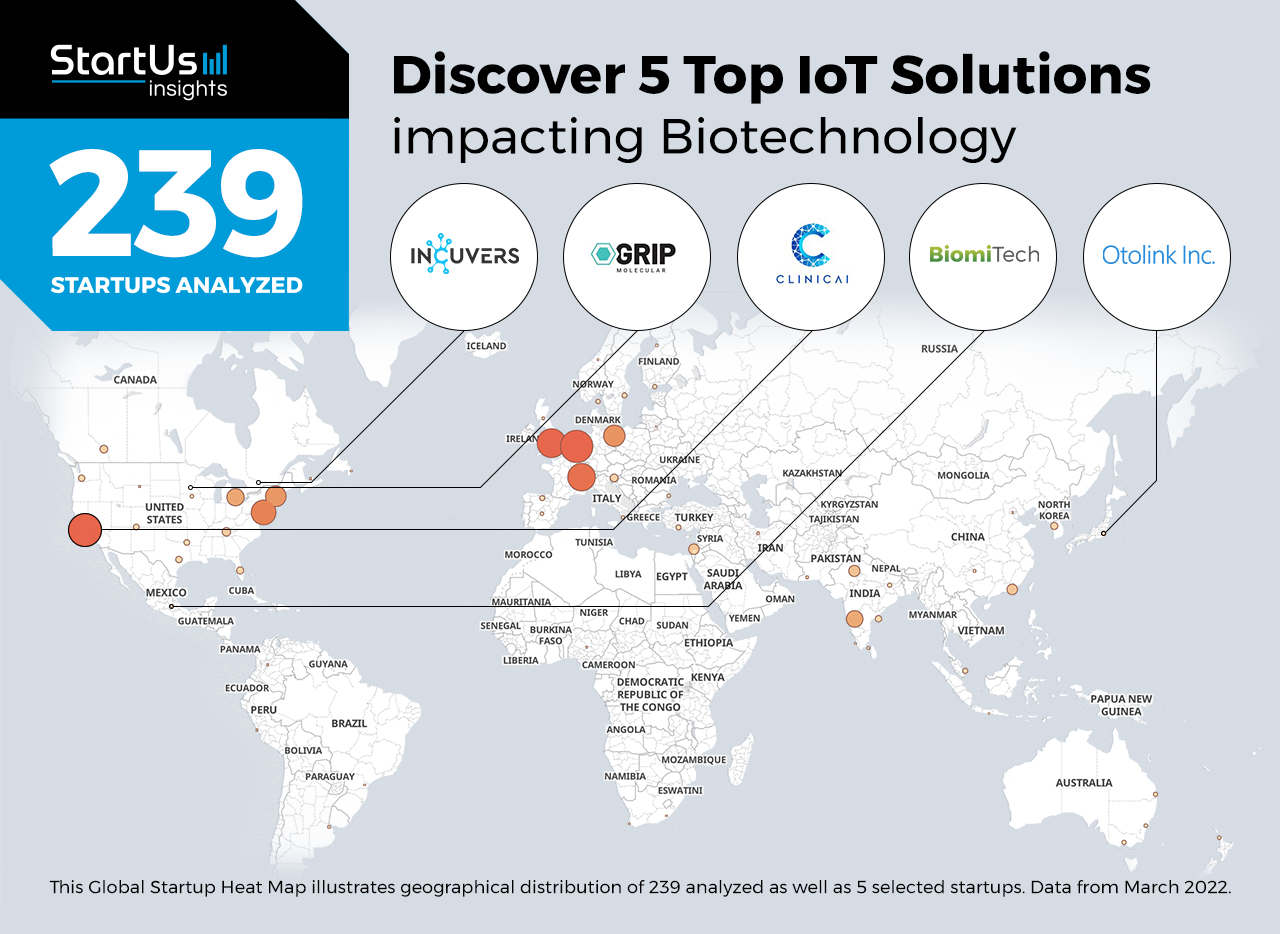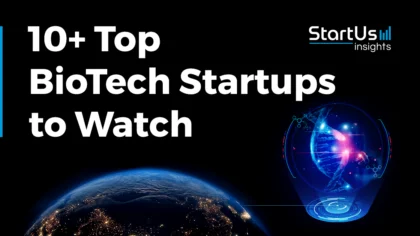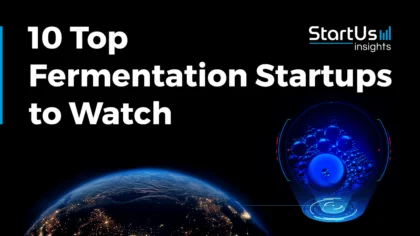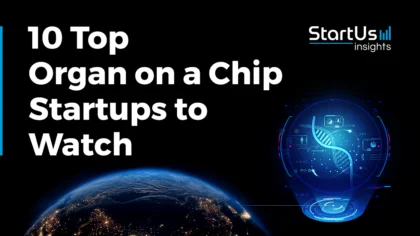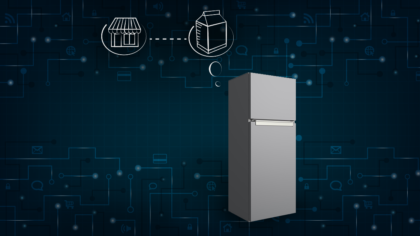Accelerate Productivity in 2025
Reignite Growth Despite the Global Slowdown
Staying ahead of the technology curve means strengthening your competitive advantage. That is why we give you data-driven innovation insights into the biotechnology industry. This time, you get to discover five hand-picked IoT solutions impacting biotechnology.
Out of 239, the Global Startup Heat Map highlights 5 Top IoT Solutions impacting Biotechnology
The insights of this data-driven analysis are derived from the Big Data & Artificial Intelligence (AI)-powered StartUs Insights Discovery Platform, covering 2 093 000+ startups & scaleups globally. The platform gives you an exhaustive overview of emerging technologies & relevant startups within a specific field in just a few clicks.
The Global Startup Heat Map below reveals the distribution of the 239 exemplary startups & scaleups we analyzed for this research. Further, it highlights five BioTech startups that we hand-picked based on criteria such as founding year, location, funding raised, and more. You get to explore the solutions of these five startups & scaleups in this report. For insights on the other 234 IoT solutions impacting biotechnology, get in touch with us.
Otolink develops Stem Cell-based Therapeutics
Founding Year: 2019
Location: Minato, Japan
Partner for: Hearing Loss Treatment
Otolink is a Japanese startup that treats hearing loss. The startup efficiently induces high purity inner-ear stem cells in large volumes from induced pluripotent stem cells (iPS). It uses IoT to monitor the hearing capability of patients in real-time on a daily basis. Further, Otolink tracks the hearing improvements from clinical trials and maps them against drug dosage. This enables pharmacists to conduct human trials of drugs and determine the exact drug dosage required for therapeutics.
Incuvers facilitates Living Cell Incubation
Founding Year: 2018
Location: Ottawa, Canada
Partner for:Cell Biology Research
Canadian startup Incuvers incubates living cells. The startup uses AI and sensors to develop smart cell incubators. Its incubator, Incuvers Real-time Imaging System (IRIS), enables time-lapse cell imaging in real-time by capturing non-invasive phases and fluorescent live cells. IRIS also allows biotech researchers to regulate internal incubator conditions including temperature, carbon dioxide, and oxygen. The users receive phone-based notifications during live-cell monitoring about the significant changes. Additionally, the hardware solution stores the recorded video of the imaging in the cloud-based software with local backup. The startup’s solution thus enables collaborative cell research by analyzing and benchmarking the data against other researchers’ work using smart algorithms.
CLINICAI enables Connected Healthcare
Founding Year: 2016
Location: San Francisco, US
Partner for: Smart Toilets
US-based startup CLINICAI develops solutions for connected healthcare. The startup uses IoT and predictive analytics to monitor outpatient health status. Its connected devices pick up signs of diseases before any significant damage to health is done. The startup’s toilet monitor detects colorectal cancer and other preventable diseases using biotechnology and artificial intelligence. CLINICAI’s software analyzes bio-waste to send personalized user reports directly to its mobile application. This enables families to enable smart toilets and predict early disease symptoms for faster action.
BiomiTech simplifies Smart Carbon Capture
Founding Year: 2016
Location: Puebla, Mexico
Partner for: Air Quality Monitoring
BiomiTech is a Mexican startup that facilitates smart carbon capture. The startup uses biotechnology and IoT to clear atmospheric pollutants. Its system for urban locations, BioUrban, bioremediates polluting agents such as CO2, NOx, and particulate matter and has sensors to provide updates on air quality and gas composition. BioUrban uses this information to perform algae-based photosynthesis and remove suspended particles in the required quantity. Moreover, the process converts polluting agents into biomass and oxygenating agents. This enables high-emission industries and individuals to clear the air and monitor air quality in real-time.
GRIP Molecular offers Graphene Biosensors
Founding Year: 2019
Location: St. Paul, US
Partner for: Remote Disease Diagnosis
US-based startup GRIP Molecular makes graphene biosensors. The startup replaces chemical assays with graphene-enabled and dielectrophoresis-enhanced solid-state electronics. Its product, GRIP, uses saliva samples to detect diseases remotely from home, elder care facility, or pharmacy. GRIP’s biosensor wirelessly transmits the data to a standard cell phone or other mobile devices where it is displayed. The solution enables clinicians to provide actionable medical diagnostic information with a single test in a more efficient manner.
Discover more BioTech Startups
BioTech startups such as the examples highlighted in this report focus on drug discovery, biosensing, molecular biology as well as advanced analytics and bioinformatics. While all of these technologies play a major role in advancing the industry, they only represent the tip of the iceberg. To explore BioTech technologies in more detail, simply let us look into your areas of interest. For a more general overview, download our free BioTech Innovation Report to save your time and improve strategic decision-making.
